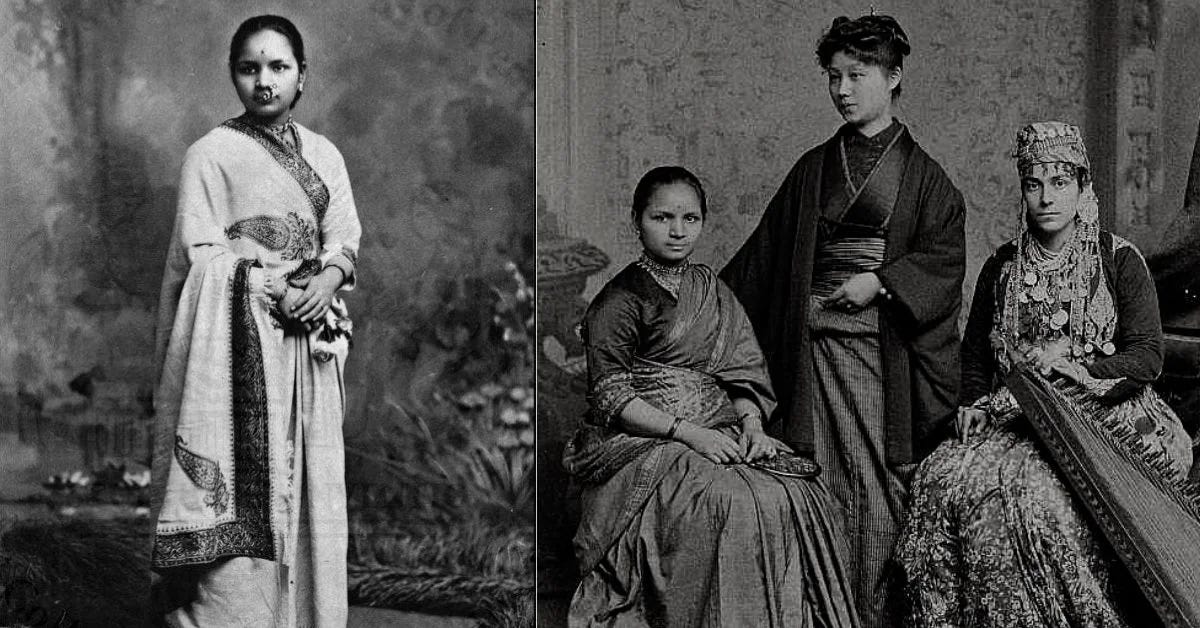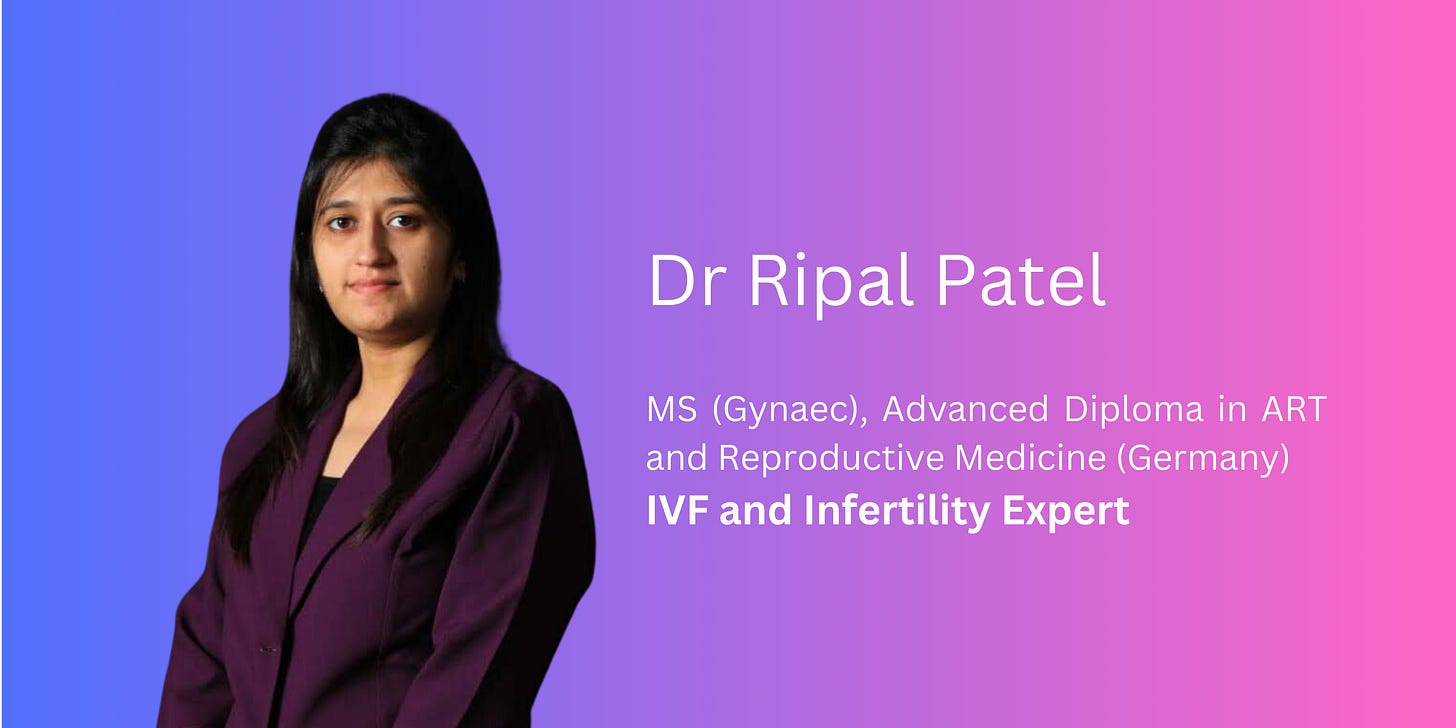Innovation in Medicine: Mayflower Launches J&J's 'Harmonic 1100' Laparoscope
Dr Sanjay Patel, leading laparoscopic surgeon, performs the first surgery with Harmonic 1100 by Ethicon | Anandi Bai Joshi and Women in Medicine | Vasectomy v/s Tubal Ligation | Welcoming Dr Ripal
Hello there!
We’ve got some great news for you that has got the technophile doctors of Mayflower beaming with pride and excitement.
Mayflower is proud to announce the official launch of Johnson & Johnson's revolutionary laparoscopic probe, the "Harmonica 1100," in collaboration with Ethicon.
The Harmonica 1100 represents a remarkable advancement in minimally invasive surgical technology, designed to enhance precision, efficiency, and patient outcomes. This cutting-edge laparoscopic probe leverages state-of-the-art features that empower surgeons to navigate with unprecedented accuracy within the human body.
Here are a few moments from the surgery that launched launching J&J’s Harmonica 1100.
Key Highlights of the Harmonic 1100:
Enhanced Precision: The Harmonic 1100's advanced sensors and optics provide surgeons with real-time, high-definition imagery, ensuring precise navigation during laparoscopic procedures.
Greater Efficiency: With ergonomic design and intuitive controls, this device streamlines surgical workflows, reducing operating time and enhancing overall surgical efficiency.
Patient-Centric Design: Ethicon and Johnson & Johnson have prioritized patient well-being by minimizing tissue trauma and postoperative discomfort, resulting in quicker recovery times and improved patient experiences.
Versatile Applications: The Harmonic 1100 is versatile and can be used across a wide range of laparoscopic procedures, making it an invaluable tool in the modern surgical toolkit.
We are excited about the potential impact of the Harmonic 1100 on the world of surgery. Mayflower is committed to delivering innovative solutions that elevate healthcare standards, and this partnership with Johnson & Johnson and Ethicon reaffirms our dedication to that mission.
While healthcare for women is advancing by leaps and bounds, let’s take a look at how women are advancing in medicine and where it all started.
From Anandi Bai Joshi to Today: Women's Progress in Indian Medicine
The statistics are clear: according to NITI Aayog, nearly half of the medical students in India today are women, marking a significant stride towards gender equality in the field of medicine. However, the story takes a different turn when we look at the data from the Medical Council of India (MCI) in September 2021, which reveals that only about 21% of registered medical practitioners in the country are women.
This disparity echoes the pioneering journey of Anandi Bai Joshi, who broke barriers in rural Maharashtra to become India's first female doctor. Her inspiring narrative, from overcoming the constraints of child marriage to pursuing education and ultimately earning her medical degree, exemplifies resilience and determination. Anandi's legacy continues to inspire, while also shedding light on the stark gender disparities that persist in today's Indian medical landscape.
Born in 1865, Anandi defied societal expectations, thanks in part to her progressive husband, Gopalrao Joshi, who encouraged her thirst for knowledge. Together, they embarked on a rare journey towards education for women in the 19th century.
However, tragedy struck when Gopalrao succumbed to tuberculosis, leaving Anandi widowed at just fourteen. Fuelled by her resolve to prevent others from experiencing a similar fate, she sought support from missionaries and well-wishers, embarking on an extraordinary journey.
In 1883, Anandi made history by becoming the first Indian woman to travel to the United States, where she pursued her medical education despite her own health struggles. In 1886, she earned her medical degree, becoming Dr. Anandi Bai Joshi.
Her return to India was celebrated as a triumph over adversity, symbolizing hope for women to break free from traditional constraints and pursue their aspirations. However, it also highlighted the persistent challenges that women face in the Indian medical profession.
Fast forward to the 21st century, and while progress has been made, gender disparities endure. Deep-rooted societal norms, gender bias, and the difficulties women encounter in balancing their careers with family responsibilities contribute to this persistent gender gap. Anandi's legacy serves as a beacon of hope, while also reminding us of the urgent need to address these barriers.
As we reflect on Anandi Bai Joshi's remarkable journey, her story challenges us to work towards a future where all women in India have equal opportunities to excel in medicine. It is an opportunity to honour the spirit of this pioneering woman while actively shaping a more inclusive healthcare landscape.
Women have borne the responsibility of surgical contraception for decades, despite the higher risks involved
Vasectomy is a much safer procedure owing to its short duration of about 15 min., no need for general anaesthesia and complete mobility within a few hours in comparison to a Tubal Ligation. Tubal Ligations are done under general anaesthesia and pose the threat of complications in recovery as well as ectopic pregnancies. And yet,
Tubal Ligations account for 30.2% of permanent contraception procedures as against vasectomies which account for only 17.1% of permanent contraception procedures.
Numbers talk, and this pushes many of us to wonder where the gap is.
Are we counselling right?
Dr Ravina Busts Some Myths About Vasectomy
Dr. Ripal Patel joined Mayflower Hospital
We are pleased to introduce Dr. Ripal, an accomplished Obstetrics and Infertility Expert with a strong academic background in ART and Reproductive Medicine. She brings extensive experience in infertility consultation, ovum pick-ups, embryo transfers, ultrasound procedures, and gynaecological surgeries. Dr. Ripal is also a dedicated researcher, co-editing and co-authoring the upcoming book 'ART – The Clinical Perspectives.' With a commitment to advancing women's health, Dr. Ripal is a valuable addition to our team.
In conclusion for today, here’s a parting thought for you,
“Medicine heals doubts as well as diseases”
- Karl Marx
Do you agree? Feel free to write back to us, this is a two-way street and we’d love to interact with you!
Thanks for reading Pollen by Mayflower. If you liked what you read and would like to read more of it, please subscribe and receive regular updates from us.
And if you think a friend would love to read this, feel free to share it with them too. We’d appreciate it :)








